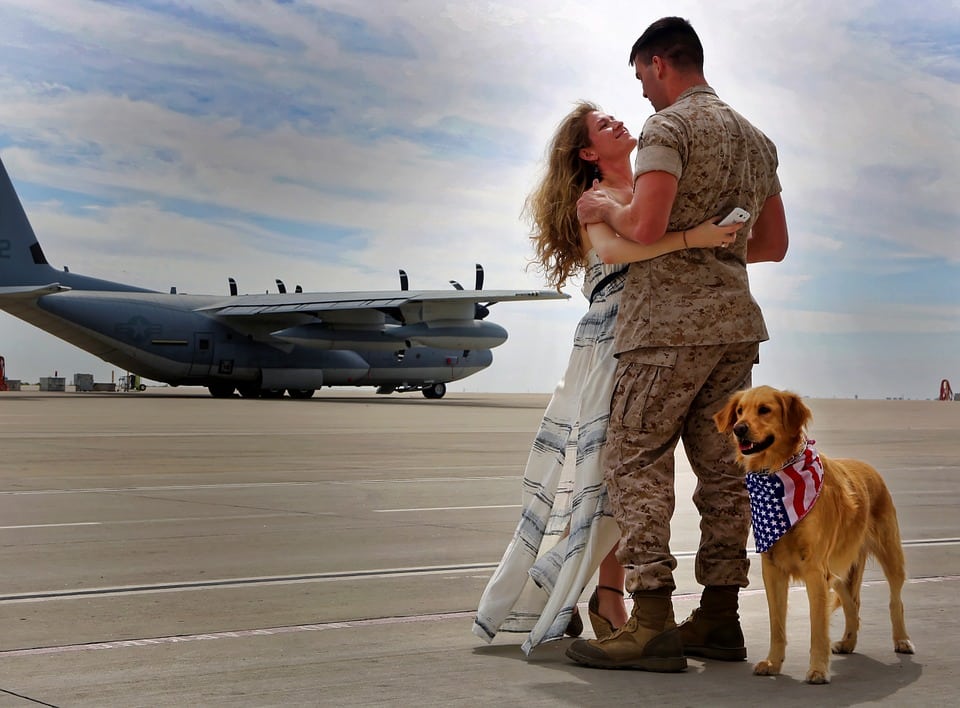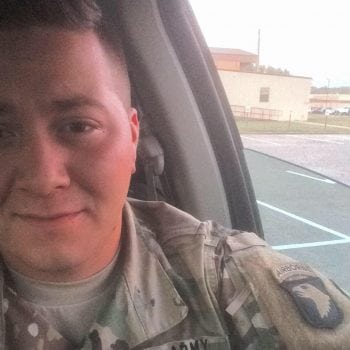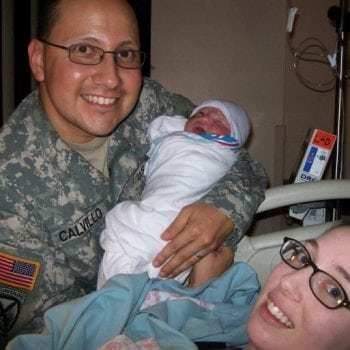Colorado VA Home Loans:
Eligibility, Getting Started and FAQs
It’s our job to help veterans, active military members, & their families fulfill the dream of home ownership.
Thanks to the VA Home Loan Program, qualified home buyers can purchase a home with incredible terms, including no money down, low interest rates and even low credit score options. At 1st United Mortgage, our team is trained on eligibility and requirements to make the home loan process as stress-free and simple as possible for our clients. We also understand Colorado’s state specific benefits and are here to assist every step of the way.
Did you know a 620 credit score is not necessary to secure a VA loan? Many of our clients are pleasantly surprised to learn that we can approve loans with a credit score of 620. We also offer a credit score rehabilitation program.

VA Mortgage Options in Colorado

The VA loan benefit is only available for veterans and active duty members of the military. Want to see if you qualify? Click here to find out!
At 1st United Mortgage, we also have many other loan options including FHA & other conventional loan options.
Military in Colorado
Though only a few military bases are located in Colorado, there are many veteran benefits provided by the state. These benefits plus the state’s gorgeous natural landscape make it a popular place for military members to call home.
Here is a list of some the areas in Colorado we serve most with our VA home loans. Click the name to learn more about each community.
Denver
Colorado Springs
Aurora
Ft. Collins
Lakewood
Thorton
Pueblo
El Paso County
Colorado VA Loan FAQs
Click the links below to quickly jump to a section:
Eligibility
Qualification
Costs
Guidelines
Basics
Refinancing
Eligibility
VA Loan Eligibility
What is the VA Loan entitlement?
Am I eligible as a spouse of a deceased veteran?
VA loans are available to some non-military personnel, including both unmarried and remarried spouses. The following may be eligible for a VA home loan:
- The unmarried spouse of a veteran who died on active duty or because of a disability connected to his or her service is eligible.
- Surviving spouses who obtained a VA loan with the veteran before his or her death. They can obtain a VA Interest Rate Reduction Refinance Loan, also known as a VA Streamline refinance.
- Surviving spouses who remarried upon or after turning age 57 and on or after December 16, 2003. Surviving spouses who remarried before that date are no longer eligible to participate.
- The spouse of an active duty member who is listed as missing in action (MIA) or a prisoner of war (POW) for at least 90 days
How can I get my Certificate of Eligibility?
This document issued for a VA loan certifies what entitlement, if any, a military member has for receiving this benefit. Obtaining the COE (Certificate of Eligibility) is an essential part of the process as it the only method of verifying a veteran’s eligibility and entitlement. Prospective borrowers cannot complete the lending process without a Certificate of Eligibility, . Veterans can obtain their COE either directly from the VA, which typically takes a few weeks or we can access an automated system to get one in mere minutes.
What the eligibility requirements for the VA Loan?
There are basic eligibility requirements for veterans and service members, along with members of the Reserves, the National Guard and surviving spouses.
The following indicate eligibility for a VA home loan:
• 181 days served during peacetime (Active Duty)
• 90 days served during war time (Active Duty)
• 6 years served in the Reserves or National Guard
• Spouses of a service member who died in the line of duty or because of a service-connected disability.
Eligibility for a VA loan is verified via a Certificate of Eligibility. These can be obtained directly from the VA, which typically takes a few weeks or from an automated system, such as the one used here at 1st United Mortgage.
Not everyone eligible for a VA loan will secure one. There are credit and underwriting standards set by both the VA and the lender that borrowers must still meet.
Does the VA Loan allow for cash back options when purchasing a home?
- Cash-Out Refinance, which helps homeowners extract cash from their home’s equity while obtaining a lower interest rate
Is there a difference between eligibility and prequalification?
How do basic and bonus entitlements work?
How do I restore my entitlement once I pay off my previous VA Loan?
What is 2nd Tier Entitlement?
Can I use the VA Loan for a second home or rental properties?
VA Loan Qualification
Who sets the VA Loan guidelines, the VA or my lender?
The VA sets broad requirements and guidelines for military borrowers, but no income or credit requirements. The VA simply requires that borrowers demonstrate a satisfactory credit risk. Since VA lenders ultimately issue the loans, they have their own unique requirements, including credit scores. That means prospective borrowers must satisfy both the VA and the agency’s approved lenders in order to secure home financing.
If I have bad credit, can I still get a VA Loan?
Can someone else sign on the loan with me?
What income can I use to qualify for a VA Loan?
Prospective borrowers must prove enough steady income to meet their monthly expenses, including a new mortgage payment. VA loan lenders look for a minimum of two years stable employment, as well as income from the same employer and job type. Reliable, documented income can be included from a host of sources, such as:
• Base pay & allowances
• Non-military employment
• Retirement income
• Self-Employment
• Commissions
• Rental income
• A spouse’s income
• Alimony/child care
To count income from overtime work, part-time jobs, second jobs and bonuses, veterans need to show that same two-year period of stability. This also means additional paperwork hurdles for veterans who are self-employed or who make a living in the building trades, doing seasonal work or working mostly on commission. Tax returns for the previous two years are essential in income verification.
Bankruptcy and a VA Loan?
Rate And Loan Costs
What are the fees for my VA Loan?
What is the VA Funding Fee, and how do I calculate it?
- Whether the loan is a purchase or refinance
- How many VA loans you’ve had in the past
- Type of military service.
For the full breakdown or to calculate your exact fee, visit VAFundingFee.com.
How are rates for VA Loans determined?
Does my credit score affect my VA Loan rate?
VA Loan Guidelines
Can I borrow more than the value of my home with a VA loan?
Can I have more than one VA loan at a time?
How complicated is VA financing?
When purchasing a home, does the VA Loan allow for cash back options?
What is the maximum VA Home Loan?
Can I borrow extra money to make home improvements?
VA Loan Basics
How do I get prequalified and what happens afterward?
What if I don’t have copies of my discharge paperwork?
Can I pay off a VA Loan early?
When is the VA Loan not my best option?
VA Refinancing
Can the VA Loan help me lower my monthly bills?
What types of homes can I buy with a VA Loan?
The vast majority of military buyers use their VA loan to purchase or refinance an existing single-family home. But veterans interested in purchasing a condo or building a home from the ground up can also utilize a VA loan. You can use a VA loan:
- To purchase a residence that’s owned and occupied by the veteran.
- To refinance an existing VA-guaranteed or direct loan in order to lower the current interest rate.
- To refinance in order to take out cash.
- To repair, alter or improve a residence owned by a veteran.
- To simultaneously purchase and improve a home
- To make energy-efficiency improvements in conjunction with a VA purchase or refinance loan.
- To purchase up to four one-family residential units in a condo development approved by the VA. One of those four units must be used as the borrower’s primary residence.
- To purchase a farm residence to be owned and occupied by the veteran. The property cannot be a working farm or an income-producing property.
What Our Clients Are Saying
Zachary Burrows
Carmella Teeter
Anthony Calvillio
Ready To Start Today?
Get started immediately with our quick quote form or complete the full online application & get pre-qualified now.



